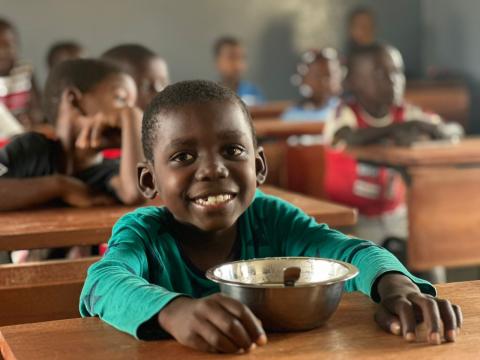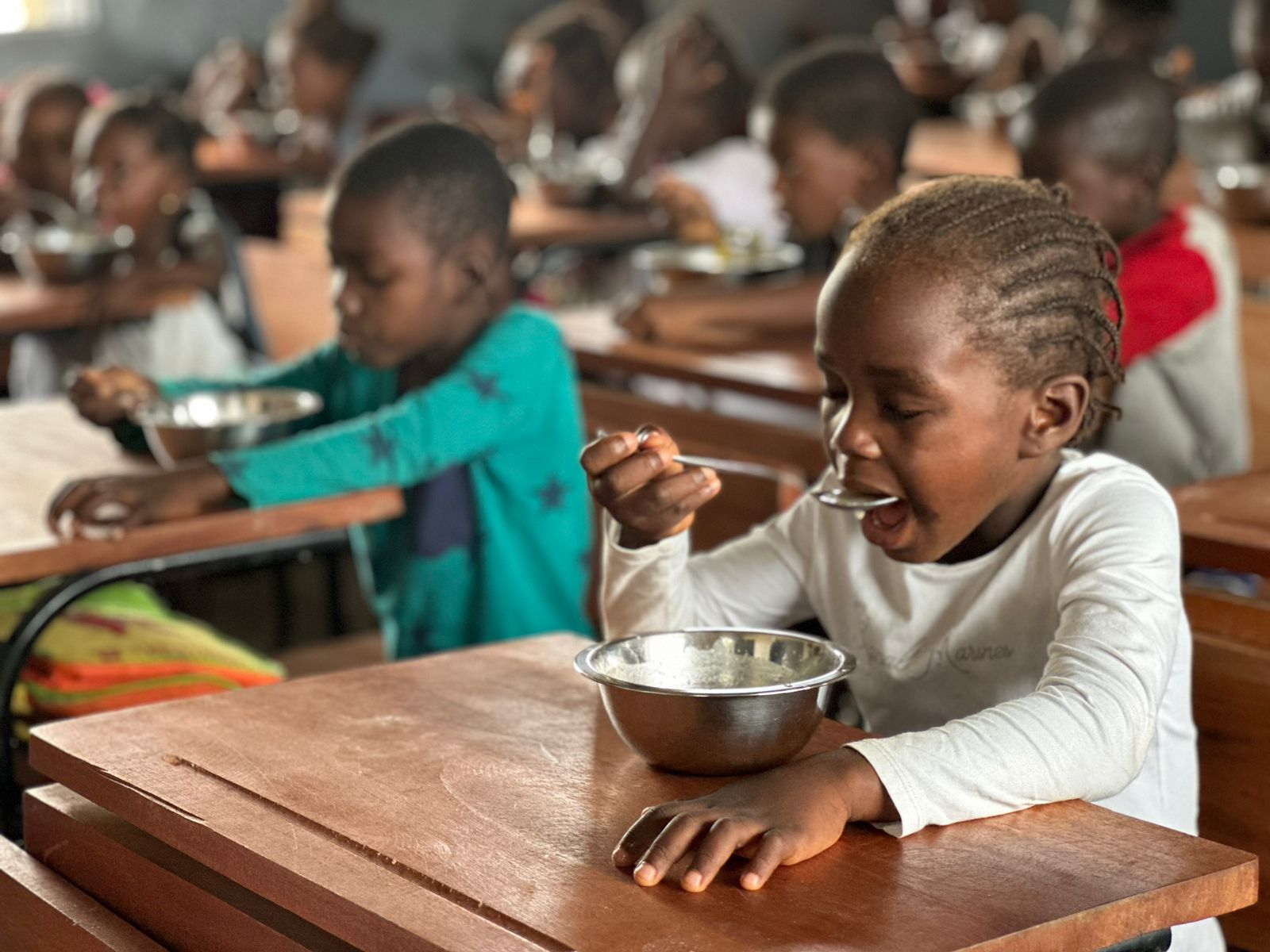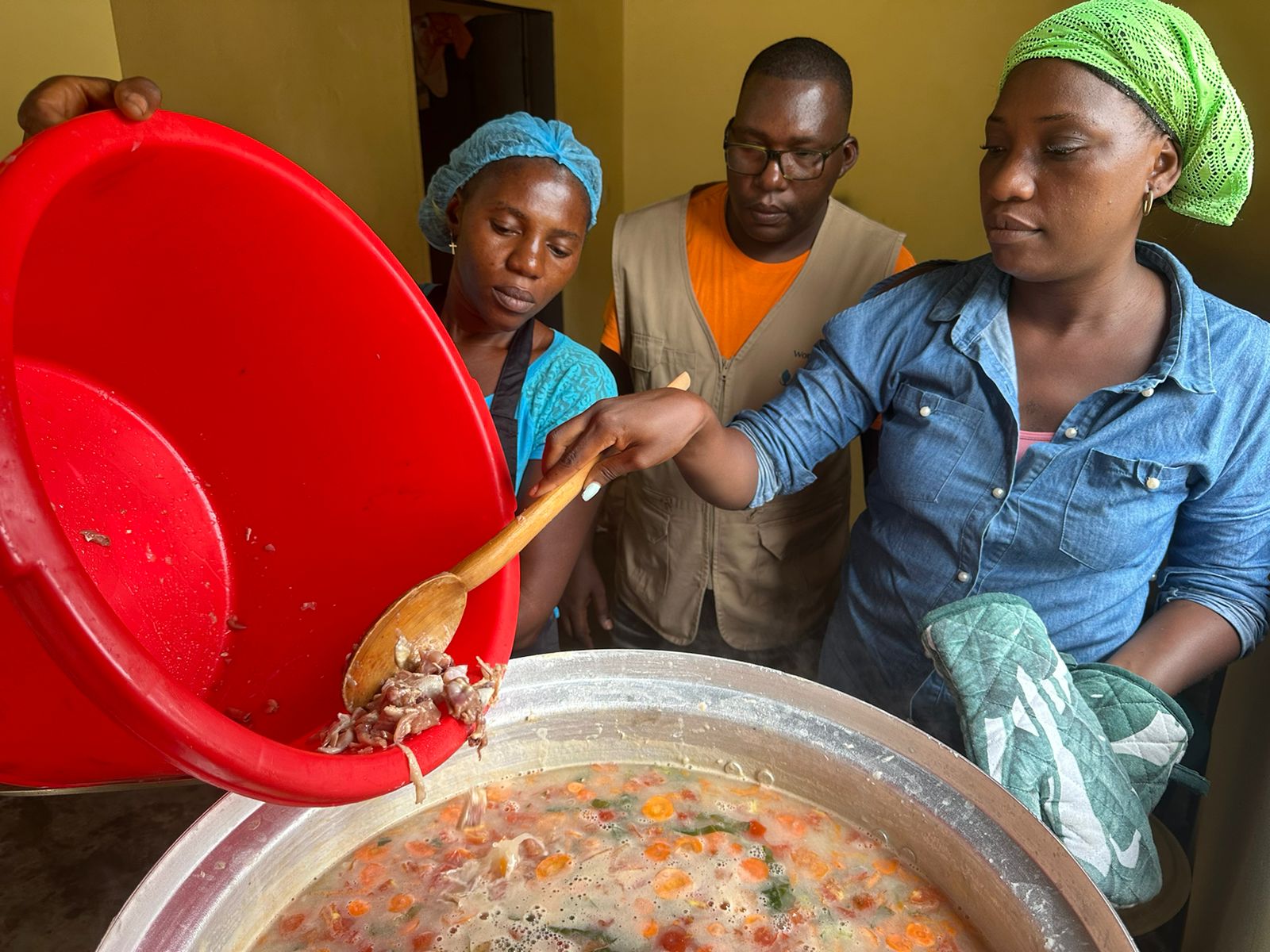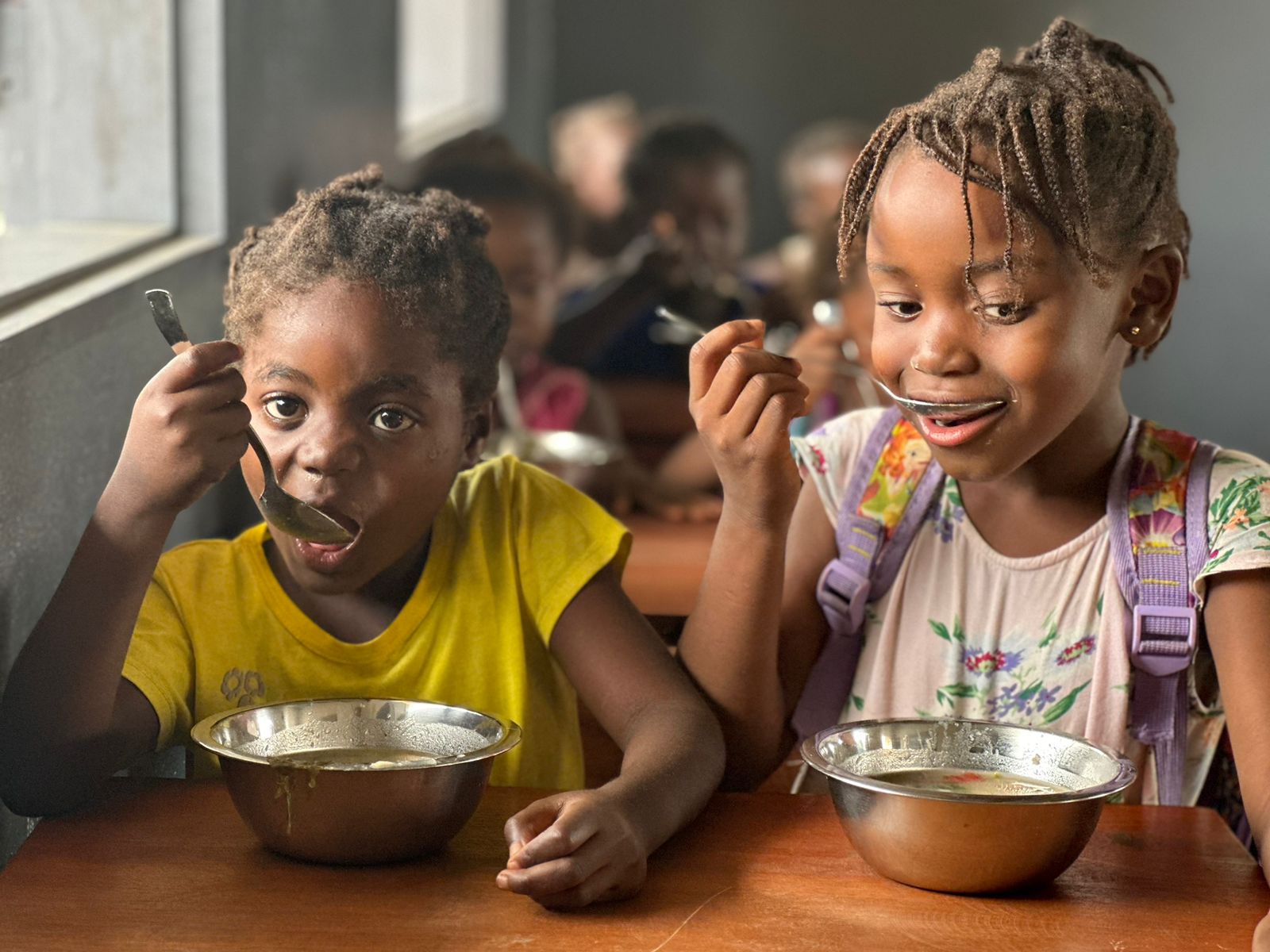The Transformative Impact of School Meals in Northern Angola

Food insecurity and child malnutrition are severe issues, particularly in Angola's remote and challenging regions. Often, these problems directly impact children's education, leading them to miss school due to hunger.
In the Chinfuca community, Cacongo municipality, the Integrated Cabinda Project (PIC) has revitalized the local school and introduced a school meals program. Twelve-year-old Miguel, who once struggled to attend school regularly due to food shortages, now enjoys a hot, nutritious meal twice a week, thanks to this initiative. Despite the community's severe poverty, the consistent meals have inspired Miguel to stay in school and pursue his dreams.

The introduction of school meals under the PIC has positively transformed the lives of 142 students at Chinfuca primary school.
"Before, we couldn't focus on studying when we were hungry at school. Sometimes we would leave to find something to eat at home. If my grandmother had food, we ate; if not, we went hungry," recalled Miguel.
Affectionately known as Benilton, Miguel enjoys studying and playing with his classmates. His increased school attendance has significantly improved his performance, especially in Mathematics, his favorite subject. The ability to calculate numbers has even aided him in helping his grandmother with her small canteen.
"I don’t want to miss school anymore, even during vacation, because I know I will have food at school," Miguel said with determination.
The Angolan government is aware of Chinfuca families' vulnerabilities and is working to ensure school meals are provided to both state and private primary schools on a co-payment basis, as outlined in Presidential Decree No. 138/13. However, this program has only reached less than half of the country’s educational institutions. Chinfuca's school, previously excluded from the program, benefited from the PIC’s interventions nearly a year ago, which included rehabilitating the school structures and building a kitchen on-site.
The Broader Impact on Families
The PIC's benefits extend beyond the students to their families. Miguel's aunt, Matilde Lúcia, has become a key player in the community by joining the team of cooks preparing the school meals. As one of the five hired cooks and team leader, Lúcia earns Kz 30,000, which significantly aids her household finances.
"Even though a bag of rice costs Kz 24,000 now, this money helps us buy other necessities. We manage expenses by saving a bit here and there and taking on small jobs," Lúcia explained.
The kitchen is managed in collaboration with Field Schools and is supervised by World Vision Angola to ensure compliance with the School Meal Regulation. This includes providing one-third of daily caloric needs, ensuring balanced nutrition with carbohydrates, proteins, fats, and micronutrients, and adhering to stringent food hygiene practices.
The meals, including Ndkila porridge made from locally grown soy and corn and cassava soup, were chosen to incorporate local foods and introduce healthier eating habits.

"I’m thrilled to contribute to the school meals. Initially, I was nervous about serving so many children, but now I can't imagine not hearing their joyful voices," Lúcia shared with enthusiasm.

In addition to Miguel, Lúcia’s own child benefits from the meals, and she has seen remarkable changes since the program began. "Children now enjoy attending school and are making great progress. They can read and write and are growing well. It's wonderful to see them thrive, and World Vision's support has made a significant difference," Lúcia praised.
The adaptation to new foods, such as soup, was initially challenging, but training has helped the cooks learn to prepare diverse meals, improving local dietary habits.
Enhancing Local Agriculture
The PIC also supports local agriculture. Chinfuca’s group received agro-processing machines, including those for cassava flour and groundnut seeds. These tools have empowered women like Lúcia to grow and sell produce, improving their financial situation and food security.
"In my plot, I've planted groundnuts, macunde beans, cassava, tomatoes, plantains, and eggplant. Being part of this group has been incredibly beneficial. I've already harvested 75 kilograms and expect even more," Lúcia reported with hope.
The Field Schools provide essential training in farming techniques, helping local farmers optimize their yields. This has introduced new crops like soybeans and macoba beans, enhancing local agricultural practices and productivity. T
Financial Literacy and Community Savings
Lúcia’s personal journey from not attending school to becoming a community leader is inspiring. Now 38, she balances her roles as a cook, farmer, and active member of a community savings group.
The community savings initiative encourages members to save small amounts regularly, which are then distributed at the end of the year. This program has taught Lúcia and others valuable financial skills, promoting savings and reinvestment in personal and community development.
"I initially hesitated to join the savings group, but after my aunt’s advice, I realized the benefits. It’s been incredibly educational and rewarding," Lúcia said.
The savings group also allows members to access emergency loans, supporting health and other urgent needs. This approach helps families reinvest in agriculture or small businesses, improving their economic stability and quality of life.
The Integrated Cabinda Project's school meals program has made a profound difference in Chinfuca, from enhancing student attendance and performance to uplifting entire families and boosting local agriculture. By addressing food insecurity and supporting community-driven solutions, the PIC is fostering a brighter future for the children and families of Cabinda.